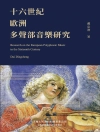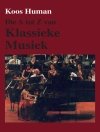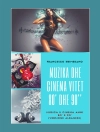Scholars explore from many fresh angles the interweavings of two of the richest strands of human culture – music and esotericism – with examples from the medieval period to the modern age.
Music and esotericism are two responses to the intuition that the world holds hidden order, beauty, and power. Those who compose, perform, and listen to music have often noted that music can be a bridge between sensory and transcendent realms. Such renowned writers as Boethius expanded the definition of music to encompass not only sounded music but also the harmonic fabric of human and cosmic life. Those who engage in pursuits called ‘esoteric, ‘ from ancient astrology, magic, and alchemy to recent and more novel forms of spirituality, have also remarked on the relevance of music to their quests. Esotericists have composed music in order to convey esoteric meaning, performed music to create esoteric influences, and listened to music to raise their esoteric awareness.
The academic study of esotericism is a young field, and few researchers have probed the rich interface between the musical and esoteric domains. In
Explorations in Music and Esotericism, scholars from numerous fields introduce the history of esotericism and current debates about its definition and extent. The book’s sixteen chapters present rich instances of connections between music and esotericism, organized with reference to four aspects of esotericism: as a form of thought; as the keeping and revealing of secrets; as an identity; and as a signifier.
Edited by Marjorie Roth and Leonard George. Contributors: Elizabeth Abbate, Malachai Komanoff Bandy, Adam Bregman, Charles E. Brewer, Benjamin Dobbs, Anna Gawboy, Pasquale Giaquinto, Adam Knight Gilbert, Joscelyn Godwin, Virginia Christy Lamothe, Andrew Owen, Christopher Scheer, Codee Ann Spinner, Woodrow Steinken, and Daphne Tan.
Table of Content
Foreword
Joscelyn Godwin
Acknowledgments
Introduction: The Muzzled Muse
Leonard George and Marjorie Roth
*
Part One: Esotericism as a Form of Thought
1. The Hermaphroditic Nature of the
mi-fa Complex
Adam Bregman
2. Athanasius Kircher and the Nature of Ecstatic Listening
Charles Brewer
3. Claude Bragdon’s Images of the Seven Degrees of the Scale
Joscelyn Godwin
4. Music Analysis as Esoteric Activity: Viktor Zuckerkandl at Eranos
Daphne Tan
* *
Part Two: Esotericism as the Keeping and Revealing of Secrets
5. Concealment Revealed: Sound and Symbol in Ockeghem’s
Missa Quinti toni and
Missa Prolationum
Adam Knight Gilbert
6. Air and Eros: Musician as Demiurge in Renaissance Magic
Leonard George
7. ‘De septenario illo et sacro numero’: The Divine Septenarius in Baryphonus and Grimm’s
Pleiades musicae
Benjamin Dobbs
8. The Hoard and the Grail: A Wagnerian Conspiracy in Five Parts
Woodrow Steinken
* * *
Part Three: Esotericism as an Identity
9. Tommaso Campanella, the Barberini Palace, and the Soul’s Perception of Music
Virginia Christy Lamothe
10. Sonic Symbolism: Matthew Cooke’s Music for the Scottish Rite Craft Degrees
Andrew Owen
11. New American Eden: Katherine Tingley in Lomaland
Christopher M. Scheer
12. Theosophy and the Esoteric Roots of Sun Ra’s Afrofuturism
Anna Gawboy
* * * *
Part Four: Esotericism as a Signifier
13. ‘Im Himmel und auf Erden’: Geometry, Alchemy, and Rosicrucian Symbol in Buxtehude’s
Herr, wenn ich nur dich hab’ (BUXWV 38)
Malachai Komanoff Bandy
14. (In)Audible Sound and Spiritualist Acoustemologies
Codee Ann Spinner
15. As Above, So Below: Magic Squares and Immutable Laws of Nature in Webern’s Opus 24
Elizabeth Abbate
16. The Osiris-Light in Nino Rota’s Music
Pasquale Giaquinto
Contributors to This Volume
Index
About the author
MARJORIE ROTH is professor of music history and studio flute at Nazareth College, Rochester, NY.












